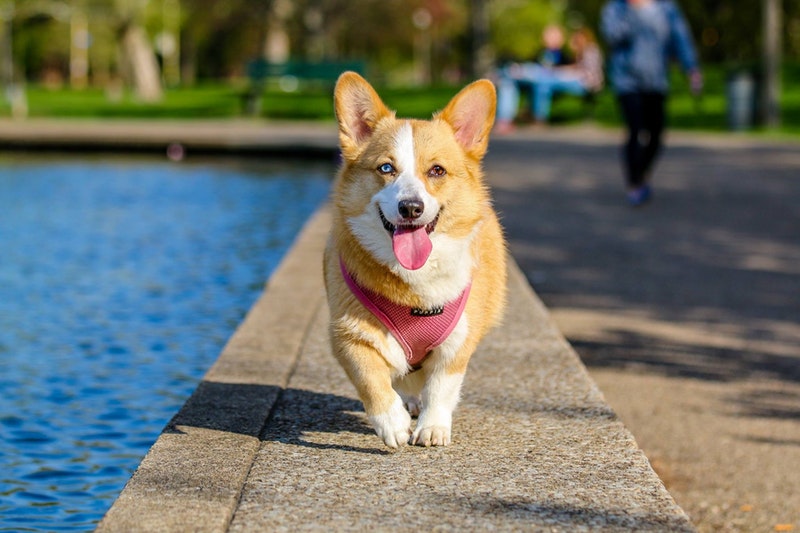Pets are more than just animals that live with us – they’re members of the family! Dog owners spend approximately $1,075 per year, which is why it won’t come as a surprise to hear that so many people now choose to take their pets on their travels with them.

Whether you’re going to visit a family member in another city, heading out on a holiday getaway or permanently relocating to a new home country, it’s now easier than ever to travel with your pet. In fact, 19% of dog owners take their beloved pooches on holiday with them!
However, with that being said, there are still precautions, rules, and regulations that you need to be aware of when traveling with your cat or dog, to ensure a smooth journey for them (and less hassle for you).
A pet vet travel certificate from your veterinarian is something that you may be required to show when checking your pet in for their journey.
First of all, can I travel with my pet?
All pets (excluding those that are authorized official assistance dogs) travel in the cargo hold of the aircraft, which is a dimly-lit, temperature-controlled space underneath the cabin.

Virgin Australia states that for animals to travel on domestic flights they must:
- Be a dog or cat
- Appear to be in good health
- Not be unduly aggressive
- Be over eight weeks of age (this is due to issues with dehydration)
- Be transported in a crate or container that complies with the Virgin Australia guidelines for domestic pet travel. What size dog crate you will need will depend on the size for your pet and the airline requirements
- Not exceed 65 kilograms (including the weight of the crate)
When you visit your vet before you travel, they will assess whether your pet needs any vaccinations or top-ups, and will advise on any quarantine requirements that may apply for your pet’s travel destination. Your vet will also be able to assess whether your pet is behaviourally suited to the experience of traveling. For instance, sometimes the noisy and unfamiliar environment (as well as the extended period of confinement in their crate) can make it a stressful time.

If your pet is a dog, their breed may also impact on their suitability for traveling. Some airlines put restrictions on the length of time a dog can be in the air depending on their breed. Short-nosed (other known as ‘brachycephalic’) breeds like Pugs, Bulldogs and Boston Terriers have a higher risk of death during flying, due to the changes in air circulation and temperature in the cargo hold cabin. For cats, this also applies to breeds like Himalayans and Persians. However, your vet will also be able to advise you further on this.
There are also certain breeds of dog that are prohibited for import into Australia under the “Customs Regulations Act 1956.” These include the Fila Brasileiro, the Japanese Tosa, the Dogo Argentino, the American Pit Bull, and the Presa Canario. Other breeds may also be included, so it’s best to check with your airline of choice to see whether they have any exclusions in their policies.
What is a pet vet travel certificate?
A pet vet travel certificate is a document that is created and endorsed by a professional veterinarian stating that your pet’s health and wellbeing means they are fit to travel. It’s basically a veterinarian providing your pet with a clean bill of health.
When do I need a pet vet travel certificate?
Your need for a pet vet travel certificate will vary greatly from airline to airline. Some will take it from you when you check your pet in, and others may ask you to present it a number of times at different stages along your pet’s journey. It’s imperative that you check with the airline as soon as possible after you book to understand what the exact requirements are.
In some circumstances, you might require a vet’s certificate that’s been acquired within a certain time period before you fly. Airlines may ask for a vet to assess your pet within 10 days of their travel time if they are pregnant or have recently given birth, if they’re particularly old or young, or if they have a sickness (not including motion sickness) or injury.
If you’ve failed to check the requirements and you don’t have the required vet certificate for your pet, the airline may refuse to fly your pet to the chosen destination, and you could lose your money.
What vaccinations does my pet need to have before they travel?
Your pet’s vaccinations must be administered by a professional veterinarian between two weeks and 12 months prior to international travel. You must keep the vaccination certificates, as again you may be required to present these to airport or travel officials along your pet’s journey.

All About Cats states that cats require the following vaccinations before traveling:
- Cat flu virus
- Feline chlamydia
- Feline enteritis
- FIV (feline AIDS)
Dogs require these vaccinations before traveling:
- C5 vaccination for protection against canine (or kennel) cough
- Canine hepatitis
- Distemper
- Parvovirus
Final remarks

It’s important to be prepared when it comes to traveling with your pet. Make sure you’ve checked all the rules and regulations prior to your journey. This will ensure you have a smooth and hassle-free experience and will reduce the stress levels of your pet. Have your pet vet travel certificate when you’re at the airport, to prove that your pet is ready to go on their big adventure!





This is so interesting! Never knew that pets like dogs needed vaccinations and a certificate before traveling. You learn something new each day!
Big, fast and versatile, the Camp Chef SmokePro 16 is a beast of a serious about smoking.